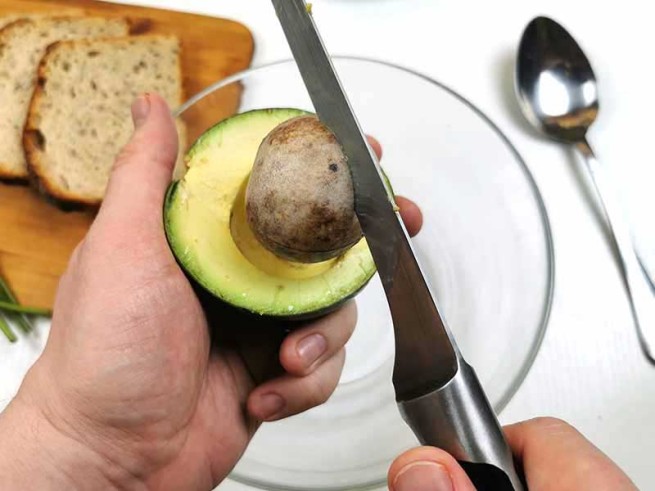How many times have you put food in the refrigerator and forgotten about it for several days, or even a week? This phenomenon is quite common, but sometimes it can be extremely dangerous to health.
“Most prepared foods are safe to eat within 3-4 days if they are refrigerated as soon as they are cool, i.e. within 2 hours of finishing cooking,” says Dr. Tracy Brigman, assistant professor of nutrition at the University of Georgia.
But this does not apply to everything and not all ingredients. According to him, some ready-made and prepared foods are particularly vulnerable to bacterial growth and need to be sold/consumed much earlier. Here are four products that should be consumed the same day after purchase or the next day (not more!).
1. Raw chicken. If you bought chicken and left it in the refrigerator for more than 24 hours, most likely it will begin to spoil (a characteristic smell appears that a fresh product should not have). During the day, poultry meat will not lose its quality.
However, if you have any doubts about whether raw poultry is safe to eat or has expired, there are a few telltale signs that will let you know. The simplest approach is to pay attention to the expiration date indicated on the packaging, and if you bought the carcass by weight, to the visual signs of spoilage.
- Typically, fresh raw chicken is light pink, pale bluish-white or even yellowish in color with white fat. If, after inspection, you notice distinctly yellow fat or greenish and grayish spots on the meat, throw away the bird!
- Spoiled chicken will stink. No, we didn’t make a mistake. Rotten raw chicken gives off more than just an unpleasant odor. Even in the refrigerator, decomposing poultry will give off a putrid stench that can spread throughout the house. To check if raw chicken is missing, remove it from the refrigerator and smell it. If you detect any sour, fishy or sulfuric notes, discard the bird.
- Check the texture of the meat. If your raw chicken passes the visual inspection and smell test, check its texture. This is another important red flag to look out for before you start cooking. If raw chicken is still fresh, the meat will be shiny, moist to the touch, and even a little slippery. If it becomes sticky, soft and as if covered in mucus, your chicken has gone bad. If so, throw it away as soon as possible.
If you have the slightest suspicion about the freshness of the product, you should not eat it, as you may be poisoned. In the United States alone, almost 1 million people get sick every year after eating contaminated poultry. Even at its freshest, raw chicken is often contaminated with many bacteria, including Campylobacter, Salmonella, and Clostridium perfringens.
Wrap raw chicken thoroughly before storing it in the refrigerator. Once prepared, consume within a maximum of four days.
The longer your chicken is stored in the refrigerator, the more time pathogenic bacteria and bacteria have to develop and multiply. Is it worth it to tempt fate and start cooking chicken if it has been lying on the refrigerator shelf for a whole week?
2. Boiled rice: Despite the fact that when raw it is stored in the pantry for several months, when cooked the product is only suitable for a few days. It is susceptible to infection by a bacterium called wax bacillus. It exists in the soil as a saprophyte and can easily infect rice, pulses, vegetables, etc.
“Cooking does not kill the spores of this bacillus. Within a few days, they multiply and produce a toxin that causes food poisoning, explains Dr. Brigman. “This happens even faster if cooked rice or other food containing the spores is left at room temperature or in a warm place.” Elderly people and immunocompromised patients are especially vulnerable to infection by this bacillus. That’s why Consume cooked rice throughout the day.
3. Peeled, hard-boiled eggs: Eggshells act as a protective layer against bacteria, says the United States Department of Agriculture (USDA). When this layer is removed, bacteria quickly enter the egg and infect it.
Great risk contamination of a peeled egg with listeria – a bacterium that can cause serious infection in immunocompromised adults, newborns and serious complications in the fetus.
USDA recommends storing hard-boiled eggs in the refrigerator for 2 hours after cooking. Never leave boiled eggs or dishes containing eggs out of the refrigerator for too long. Don’t peel them unless you plan to eat them right away. Hard-boiled eggs in their shells are safe to eat for up to a week if stored in the refrigerator.
4. Raw minced meat stored in the refrigerator one or two daysbefore it starts to deteriorate. This is due to the high level of moisture, which makes it a “magnet” for bacteria, says Dr. Brigman. In addition, bacteria may have already entered the meat during grinding.
Minced meat may contain Escherichia coli (e.coli) and salmonella. Both cause severe food poisoning.







More Stories
Why you need to refuel your car only on Mondays: an unwritten rule
A dog with bat ears that costs more than 100,000 euros
Easter: 14 tips for the festive table